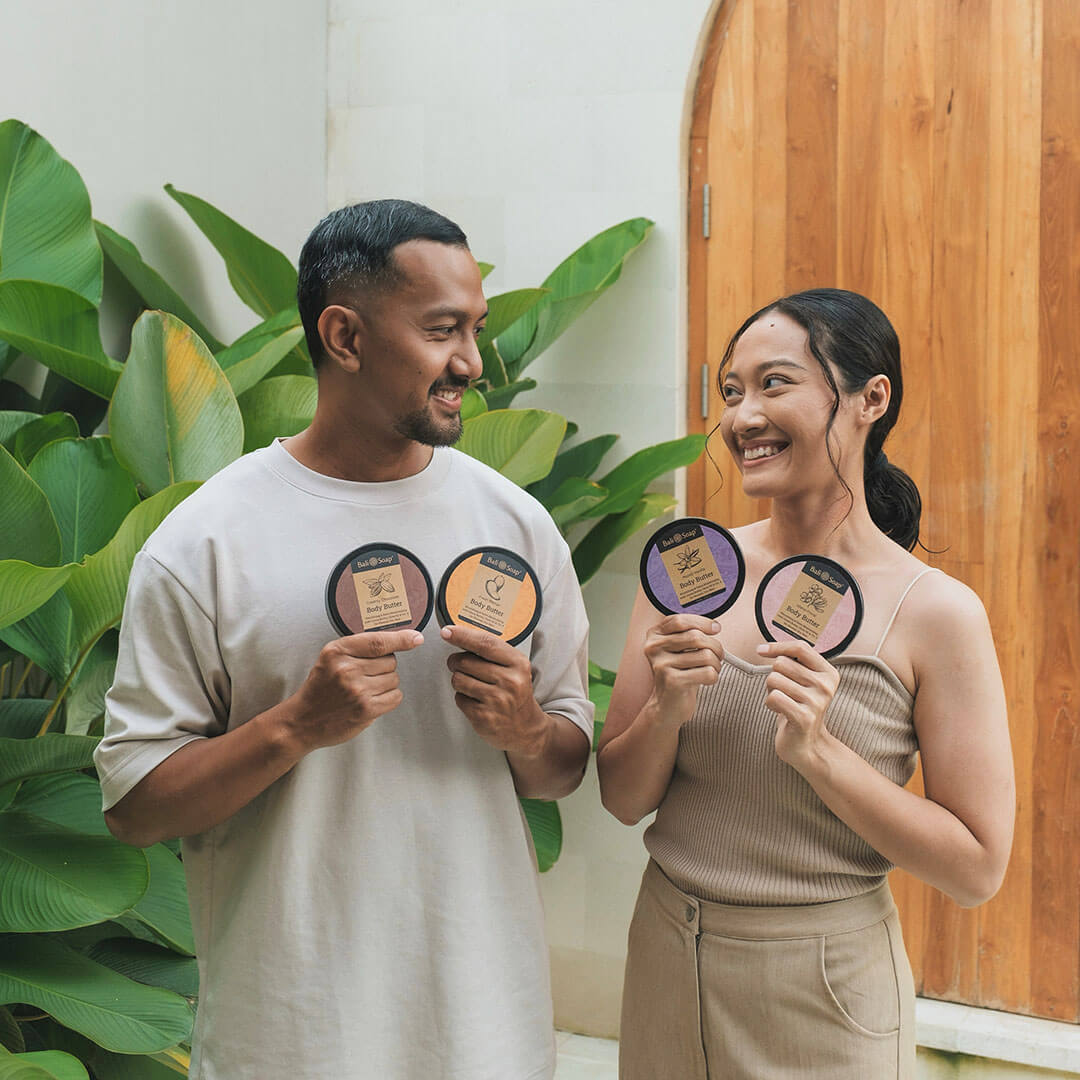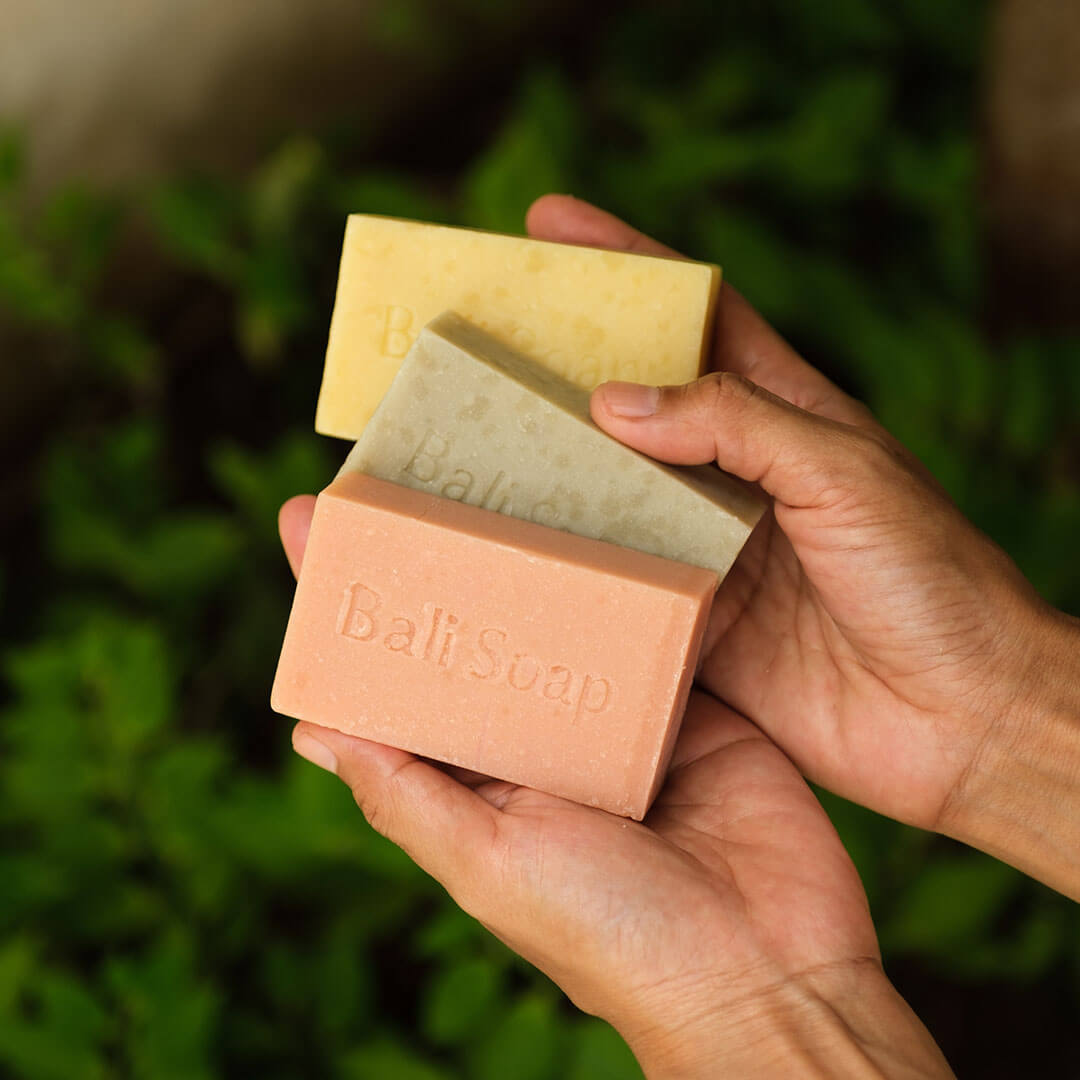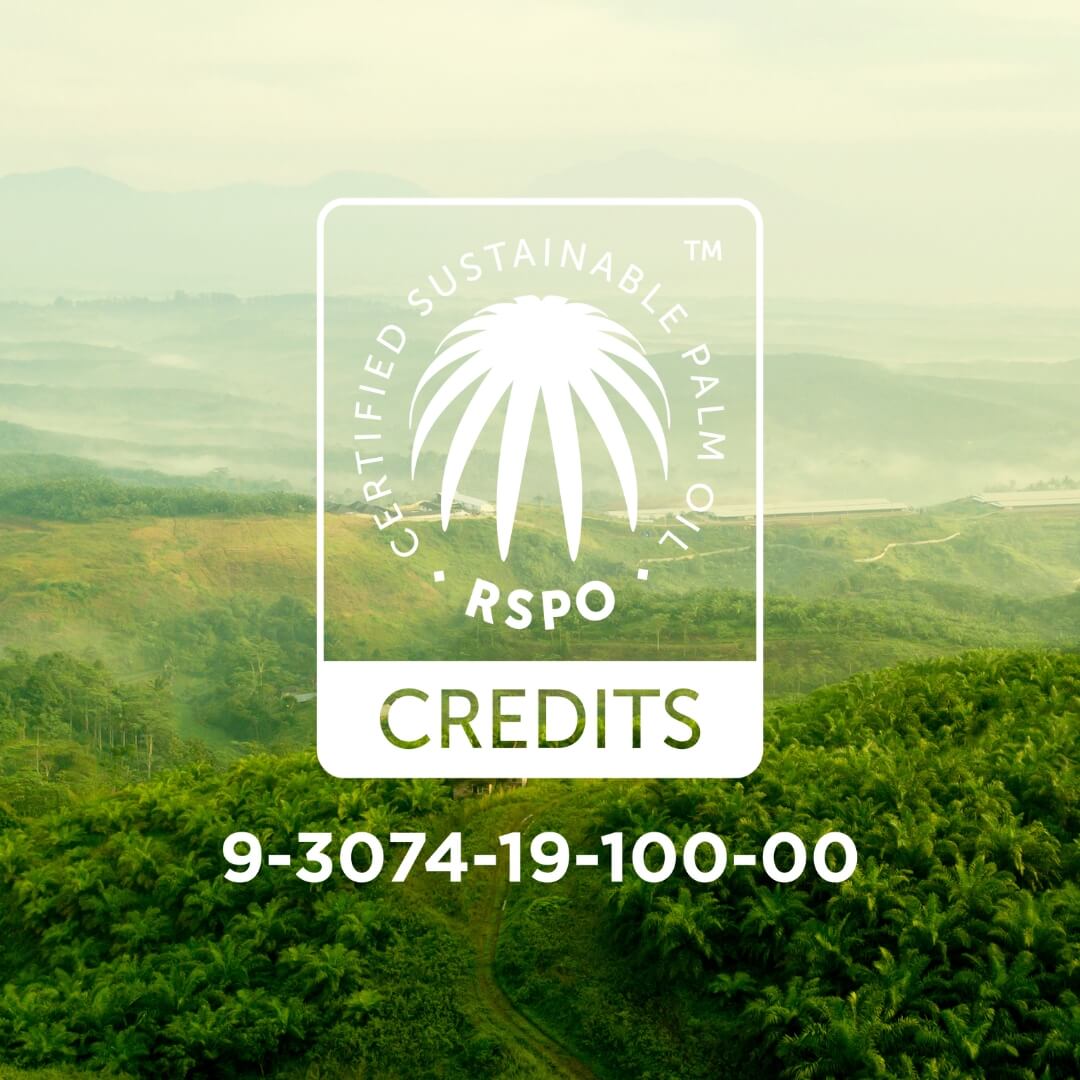

OUR STORY
Where Nature And Culture Meet
Bali Soap is a proud natural soap and body care brand from Bali, Indonesia. Our paradise island is home to abundant natural resources and fresh ingredients. Influenced by Balinese holistic culture and natural way of living, we’ve been making planet-friendly soaps and body care products by hand since 2005, using plant-based materials that are locally and ethically sourced from the Indonesian archipelago.
Bali Soap was born out of mutual respect and a shared commitment to creating an honest, ethical, and authentic body care brand that’s great for both our skin and our planet. We want people to feel comfortable and beautiful in their skin—naturally, conscientiously, and mindfully.
Embracing Nature, Preserving Culture
For centuries, Indonesians have relied on the wisdom of nature to address skin and health concerns. Inspired by this deep tradition of herbal remedies, we craft our products using only natural ingredients, allowing you to experience the same gentle yet effective benefits on your skin.
Our products embody the essence of Bali, featuring a diverse array of natural-inspired scents free from phthalates. From the delicate floral fragrances of Ylang-ylang and Frangipani to the grounding woody notes of Sandalwood and Cedarwood, and the invigorating touches of Lemongrass and Bergamot, Bali Soap’s range of bar soaps and body care products boasts familiar and inviting scents.
We carefully and ethically source all our materials to support local communities and small businesses, while also ensuring environmentally responsible practices. All of Bali Soap’s products are free of sulfates, parabens, and other toxic chemicals. They are also cruelty-free and certified by the Indonesian FDA (BPOM), guaranteeing their safety for your skin and general health and well-being. Our bar soaps are also eco-friendly as they biodegrade when rinsed down the drain and into water systems.
A Very Happy Workplace
We believe in treating people the way we want to be treated; with kindness, compassion, and respect. We strive to provide a fair, safe, positive, and highly ethical work environment for our amazing Indonesian team because we know that a happy, motivated, and empowered workforce will take good care of our business and our customers.
Our Bali Soap Employees Benefit From:
- Equal pay for men and women
- Equal gender representation in managerial and supervisory positions
- Strict sexual harassment policies
- Health insurance
- Retirement pensions
- Three-month paid maternity leave
- Fair salary with progressive pay raises based on tenure and increased responsibility
- Five-day work week (less than the standard Indonesian manufacturers’ regulations)

COLD-PROCESSED METHOD FOR HIGH-QUALITY BAR SOAPS
Bali Soap takes pride in crafting high-quality bar soaps by hand using the time-honored cold-processed method. Our handcrafted soaps are not only multipurpose and effective, but also infused with care and attention to detail. We create our natural bar soaps in small batches at our factory in Bali. Each cold-processed soap is hand-poured and hand-cut, using the finest oils, cocoa butter, herbs and botanical powders.
But, what does the “cold-processed method” really mean? In short, the cold process method refers to a soap-making process that combines oils and lye (sodium hydroxide) using no heat. Yes, that’s right, there is no cooking process, heat chambers, or fire required. Why oil and lye? Well, oil contains fatty acid, which is a natural moisturizer. When mixed with lye, a chemical reaction happens and forms soap! After mixing the two, we pour the mixture into molds to cure – it takes around 14 days to become solid soap bars.
It may sound like a very time-consuming process, and there are many ways to create soaps, but this method, in our opinion, produces the best quality (great things take time!). This traditional method preserves the natural glycerin and beneficial properties of the oils for a luxurious lather and nourishing cleanse. Nature has so much to offer, and it has lots of great benefits for our skin that, unfortunately, they can be lost through the heating process in the hot-process method.

RSPO
Bali Soap and Palm Oil
We know that palm oil does not have to be destructive, and in fact by ensuring consistent ethics are enforced through the supply chain, the manufacturing of palm oil is actually better for the environment and the social needs it fulfills, than exchanging it with other oils.
For one, oil palm is by far the highest-yielding oil crop. Substitution of palm oil with other oils — such as soybean, rapeseed, and sunflower — can therefore require significantly more land to produce the same volume. This could potentially cause greater harm to wildlife, habitats, and the environment.
Secondly, switching from palm to alternative oils is also likely to simply shift demand elsewhere, meaning that overall demand for palm oil does not decrease.
Finally, future demand for palm oil can be met without further forest and ecosystem conversion, notably by sustainably increasing productivity on existing plantations and expanding plantations to degraded land.
Bali Soap is determined to maximize its role in transforming the impact of palm oil by becoming a member of RSPO (Roundtable for Sustainable Palm Oil), an international organization that sets rigorous environmental and social criteria to rank the sustainability of palm oil production.
Our role as a goods manufacturer who utilizes palm oil in most of our products, is incentivizing Indonesian smallholding farmers to produce palm oil that complies with RSPO Principles and Criteria. In practice, for every tonne of palm oil we consume yearly, we purchase RSPO credits from smallholders with the same amount. This helps the smallholders to keep producing palm oil with the best practices of sustainability, under the RSPO guidelines, thus making them not just economically viable, but environmentally appropriate and socially beneficial.
As a brand that is committed to this good cause, we also have the benefit of using the official RSPO trademark and label on some of our product labels which helps spread more awareness to our consumers about the importance of sustainable palm oil and making the right choices.
